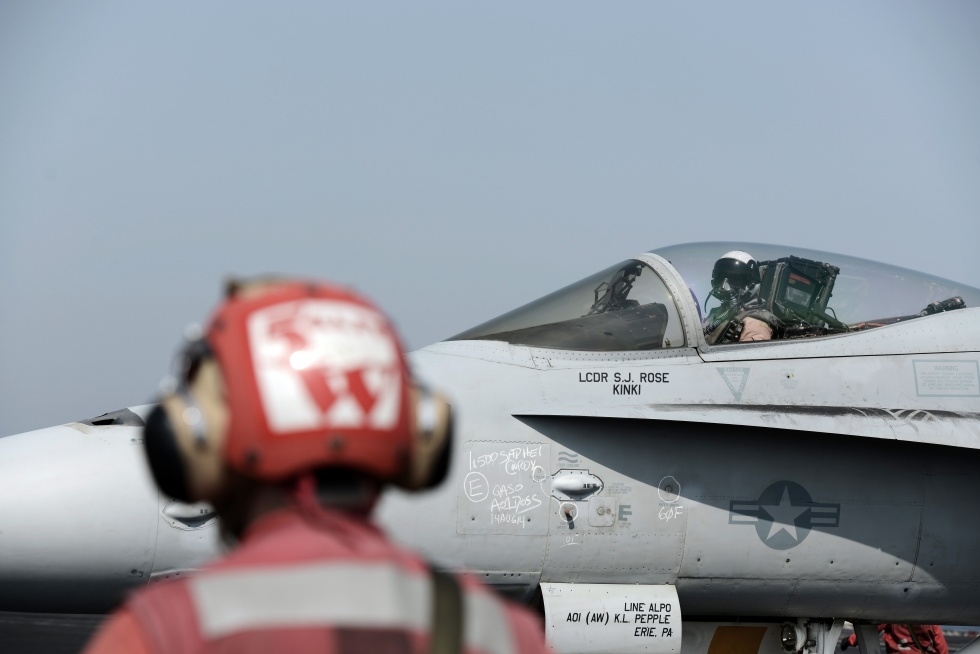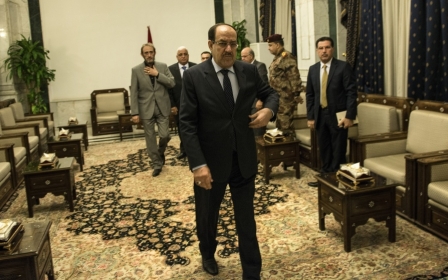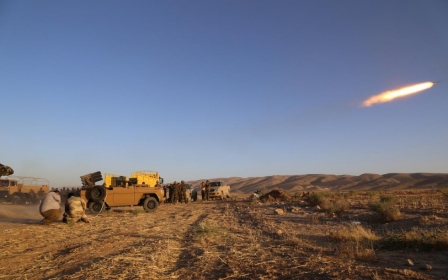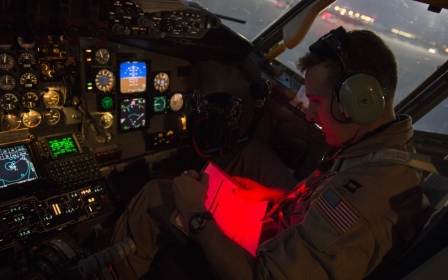Obama says US 'will continue air strikes' on Iraq

US President Barack Obama declared Thursday that America broke a militant siege of Iraq's Mount Sinjar, but said air strikes against the militants will go on.
The UN refugee agency had said tens of thousands of civilians, many of them from the Yazidi religious minority, were at one point trapped on Mount Sinjar.
"The situation on the mountain has greatly improved and Americans should be very proud of our efforts because the skill and professionalism of our military and the generosity of our people, we broke the (Islamic State) siege of Mount Sinjar," Obama said in a statement to reporters.
"We helped save many innocent lives. Because of these efforts, we do not expect (there) to be an additional operation to evacuate people off the mountain and it's unlikely we're going to need to continue humanitarian air drops on the mountain," he said.
But Obama added that the air strikes, which were begun on August 8, will go on.
"We will continue air strikes to protect our people and facilities in Iraq," he said, who had cited the risk to the US consulate in Erbil as a reason for the military intervention.
The US sent a military assessment team to Mount Sinjar, while it and other countries have dropped food and water to those stranded on the mountain.
Thousands of people have poured across a border bridge into camps in Iraq's Kurdish region after trekking through neighbouring Syria.
Pressure mounts on Maliki
In his remarks on Thursday, Obama also reiterated his call for an inclusive government to be formed and his backing for premier designate Haidar al-Abadi.
"We are urging Iraqis to come together to turn the tide against (IS) above all by seizing the enormous opportunity of forming a new inclusive government under the leadership of prime minister designate," Obama said.
Abadi, whose nomination was accepted by President Fuad Masum on Monday, has 30 days to build a team that will face the daunting task of defusing sectarian tensions and, in the words of Obama, convincing the Sunni Arab comminity that IS "is not the only game in town".
The UN Security Council has expressed backing for Abadi's nomination, calling it "an important step toward the formation of an inclusive government."
And the office of top Shiite cleric Grand Ayatollah Ali al-Sistani on Wednesday released a July letter in which he called for incumbent premier Nuri al-Maliki to be replaced.
Maliki has defied growing international pressure to step aside and insisted it would take a federal court ruling for him to quit.
Sistani is revered by millions and has enormous influence among Iraq's Shiite Arab community.
But even before the release of the Sistani letter, analysts said Maliki had lost too much backing to stay in power.
International support has poured in for Abadi, most importantly from Tehran and Washington, the two main foreign powerbrokers in Iraq.
UN vote Friday on measure to weaken IS
The UN Security Council is set to vote on Friday on a resolution aimed at weakening IS militants by choking off funding and the flow of foreign fighters.
The measure proposed by Britain would be the council's toughest response yet to IS.
Diplomats told AFP that a text had been agreed by all 15 members of the council after nearly a week of negotiations and that the resolution would come up for a vote at 1900 GMT Friday.
The final text, seen by AFP, demands that IS fighters in Iraq and Syria, rebels from the Al-Nusrah front in Syria and other al-Qaeda-linked groups "disarm and disband with immediate effect."
It "calls on all member states to take national measures to suppress the flow of foreign terrorist fighters" to the groups and threatens to slap sanctions on those involved in recruitment.
It also warns governments and entities that trade with the militants, who now control oilfields and other potentially cash-generating infrastructure, "could constitute financial support" that may lead to sanctions.
In the agreed text, the council accuses the militants of a series of atrocities and warns that such attacks may constitute a crime against humanity.
The text states that the council is acting under chapter VII of the UN charter, which means the measures could be enforced by military force or economic sanctions.
The council last week adopted a unanimous statement calling on governments to help Iraq cope with the humanitarian crisis.
It was the third condemnation of the IS offensive.
Germany, France to send aid to Iraqi Kurds
Meanwhile, Germany will send four planes with humanitarian aid to Kurds in northern Iraq on Friday, the Ministry of Defence said, while France said it would boost support to Kurdish fighters.
Four German Transall C-160 military transporters, carrying 36 tonnes of mostly medical and food supplies, will fly via Turkey to the Kurdish city of Erbil, the German ministry said in a statement Thursday.
"The federal government has decided to provide rapid and effective humanitarian aid to people in need in the north of Iraq," it said.
Defence Minister Ursula von der Leyen said this week that Germany may also send non-lethal military hardware such as armoured vehicles, helmets, security vests and night-vision gear.
Meanwhile, France said it would increase its own support to the region, following a phone call between President Francois Hollande and his Iraqi counterpart.
Hollande confirmed "France's engagement to fully play its part in international efforts to bring humanitarian aid to populations in distress and support the forces engaged in the fight against Islamic State," the presidency said in a statement.
Hollande also confirmed "the imminent delivery of military equipment, following the request of the president of Iraqi Kurdistan's regional government, Massoud Barzani," the statement said.
Many prominent lawmakers in Germany have also called for the embattled Iraqi state and Kurdish forces to be provided weapons to help them push back the IS onslaught.
Germany, a major arms manufacturer, as a rule does not export weapons into war zones, but Chancellor Angela Merkel pointed out that German law allows for exceptions in cases that impact national security.
"When it comes to arms exports, the government always has some political and legal leeway, and if necessary we will exhaust it," said Merkel.
"Here we will coordinate closely with our partners and, above all, with the United States."
New MEE newsletter: Jerusalem Dispatch
Sign up to get the latest insights and analysis on Israel-Palestine, alongside Turkey Unpacked and other MEE newsletters
Middle East Eye delivers independent and unrivalled coverage and analysis of the Middle East, North Africa and beyond. To learn more about republishing this content and the associated fees, please fill out this form. More about MEE can be found here.




